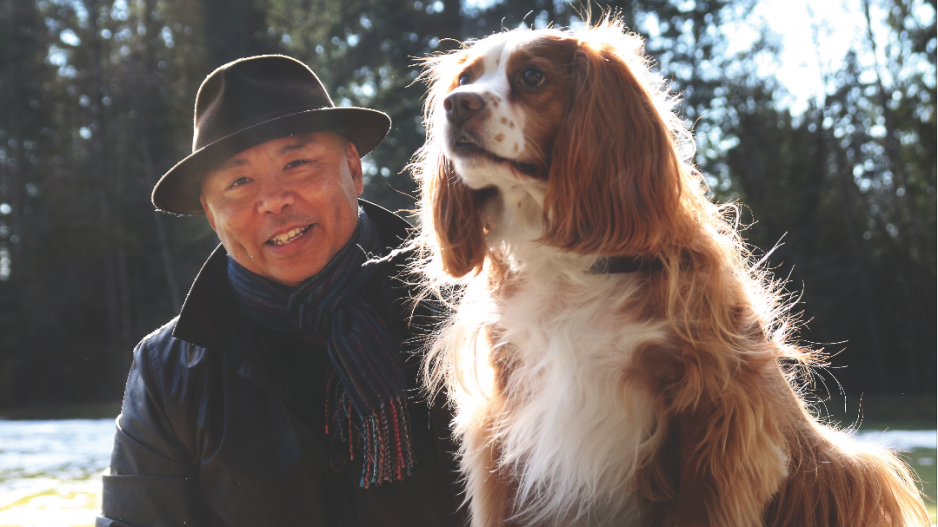The stigmatization of cannabis products in Asian markets due to a variety of historical and social reasons has been well documented, but one B.C. company may have found one area – pet health – where interest is strong.
Vernon-based True Leaf Medicine International Ltd.says the company’s True Leaf Pet Inc.subsidiary has successfully piqued the interest of several pet-health distribution partners in India, China, Japan and South Korea with its hemp-seed-based products. Those partners are now testing products with pets in Asia and hope to put them on the market this year.
The strong acceptance of such products is in sharp contrast to the general attitude towards cannabis in Asian communities, where the substance has continually been viewed negatively.
One True Leaf executive says it represents a rare opportunity for legal growers in B.C. and the rest of Canada to build a large and uncontested market outside of North America and Europe.
“Everyone in the industry agrees that the growth potential in Asia is just massive,” said Tenzin Khangsar, executive vice-president at True Leaf. “In North America, estimates show that roughly two-thirds of homes have a pet. In China, it’s 15 per cent. In India, it’s similar figures. And culturally, there has been a pivot from the traditional view of almost neglecting the role of animals as companions to it being a symbol of wealth.
“In China, it’s a symbol of wealth if you have a Tibetan mastiff that’s been sold for US$20,000 to $50,000. So we are in the middle of a shift right now… and there’s tremendous growth in Asia for pet ownership.”
Khangsar said True Leaf has one distribution partner each in India, China, Japan and South Korea, although the names of these companies have not been released. In the meantime, True Leaf is set to unveil its new global brand on March 20 at Orlando’s Global Pet Expo. It is also expanding its veterinarian advisory board, in anticipation of needing scientific expertise to persuade the governments in those countries to approve the sales of hemp-seed pet products by the end of the year.
“I think around fall is a good time where I think we can aggressively start to enter and close our strategy in each of these Asian markets,” he said, adding that the legal status of products like cannabis-infused pet chewsin North American chains such as PetSmartand British stores like Pets Cornerplays a big role in earning the trust of regulators in Asia. “When you look at the medicinal benefits of cannabis for humans, all of that applies for pets, too. Things like anxiety, pain management, mobility – all that applies to pets... The next big step is for True Leaf to do advocacy and education with the local authorities, to show them this is a safe and legal product.”
True Leaf was launched in 2015 by pet-industry veteran Darcy Bomford. The company expanded its revenue to $1.4 million last year from $37,330 in 2016, with gross profits reaching $621,329. The company says entering Asia, where it would be first in the market, would be a huge boon to the company’s growth efforts.
Khangsar said it was surprising at first to see the interest from Asian distributors at major pet trade shows in Orlando, Las Vegas and Europe, but added that it’s not so startling if one looks at the fundamental motivator.
“The driving interest always is, there has to be something other than chemicals and synthetic drugs – something plant-based – to make pets healthier,” he said. “There’s always the challenge of branding cannabis, but the counter to that is the openness to plant-based medicine – not using chemicals on our pets. Do you know veterinarians prescribe Prozac for pets? So instead of using Prozac, why not use something natural and non-harmful like cannabis solutions to help your pet become calmer?”
The company says it also benefits in Asia from Canada’s reputation as a producer of high-quality natural products, which has extended into the premium pet food sector already with brands such as Champion Petfoods LPof Edmonton and Petcureanof Chilliwack.
True Leaf also anticipates more than just the pet market opening up in Asia for cannabis. Khangsar said a “paw-in-the-door” strategy will help make governments in Asian countries more tolerant of cannabis use for humans after pet use becomes commonplace. The company is also working on stronger cannabis products – cannabidiol (CBD) oil-based items that are currently illegal in all parts of the world – while working with veterinarians to ensure the products’ safety for the time when the substance is legalized for pet use either in the West or in Asia.
Khangsar said the company finds one obstacle frustrating – non-licensed, unregulated cannabis producers that have quietly entered the market in some independent dispensaries with CBD products for pets. He said he fears that untested products will harm the market by damaging consumer trust.
“We see a lot of competition who are happily selling illegally, and all legal cannabis companies are somewhat frustrated and hope that the government [will] crack down on anyone who sells CBD illegally,” Khangsar said. “Because what’s the incentive for us who do everything by the book when we see every day our illegal competition going into stores with no safety checks and lots of misinformation? …It just takes one illegal CBD company harming a pet because of a poor product to take the whole industry down.”
According to a report last March by Grand View Research, the global pet-care market is set to reach US$202.6 billion by 2025 as demand for premium care products is expected to skyrocket worldwide.
Click here for original story.



